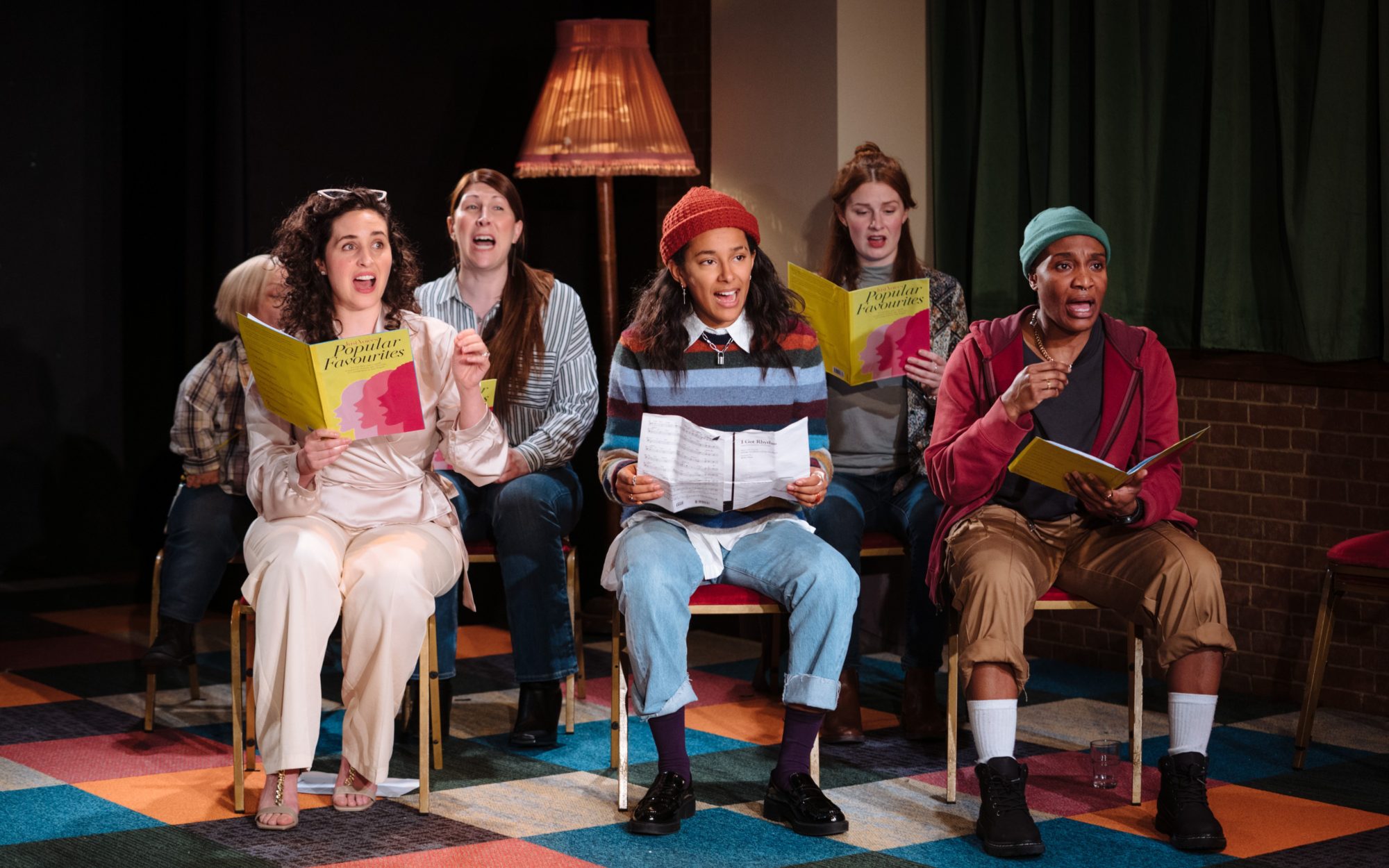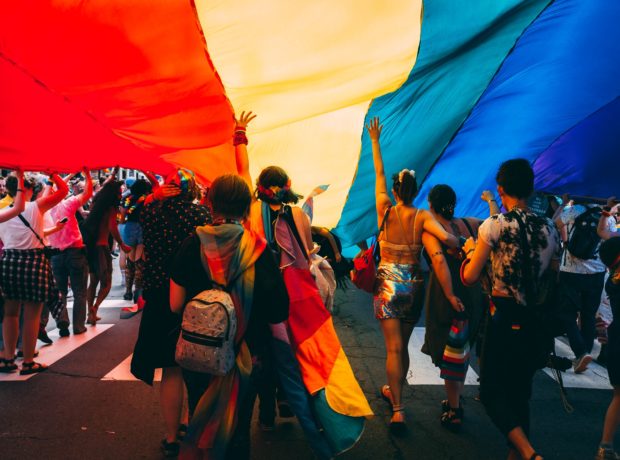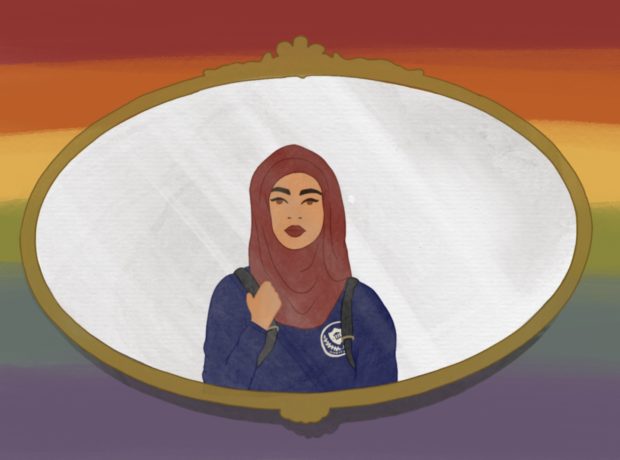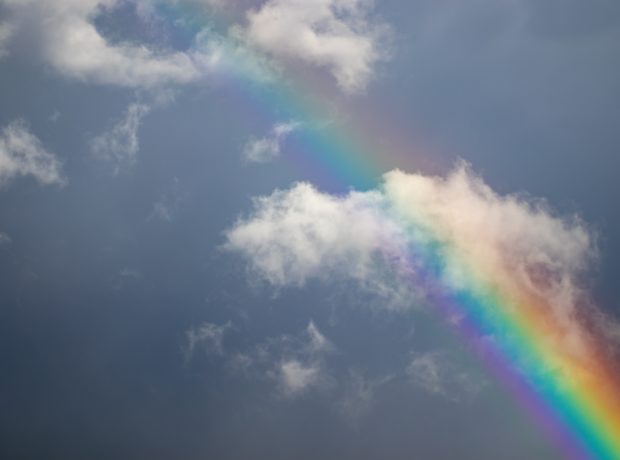In The Ministry of Lesbian Affairs, playwright Iman Qureshi uses the conflict and comic relief of a ragtag lesbian choir to ask important questions about inclusivity, safety and solidarity for queer women.
I’ve never felt as seen or as heard as when I watched The Ministry of Lesbian Affairs, a comedy featuring a lesbian choir eager to sing at Pride. The play, currently at Soho House, is an emotional rollercoaster, much like my own queer journey, complete with repressed feelings, internalised homophobia and bad jokes.
Being South Asian and Muslim, I usually feel like the odd one out in a queer scene that is overwhelmingly white. And my favourite thing about this play was it focused on the odd ones out.
The opening scene introduces two such characters. Dina (Lara Sawalha) is a Qatari Muslim woman trapped in an unhappy marriage with a man. Lori (Kibong Tanji) is a butch Black lesbian fixing Dina’s broadband connection. From the start, their comedic timing is unmistakable: Dina blatantly flirts with Lori, desperate to know another queer woman and undeterred when Lori says she has a girlfriend. Then, Dina’s husband interrupts, berating his wife for not packing his gym clothes. After he leaves, Lori relents and tells Dina about a lesbian choir in a local community centre.
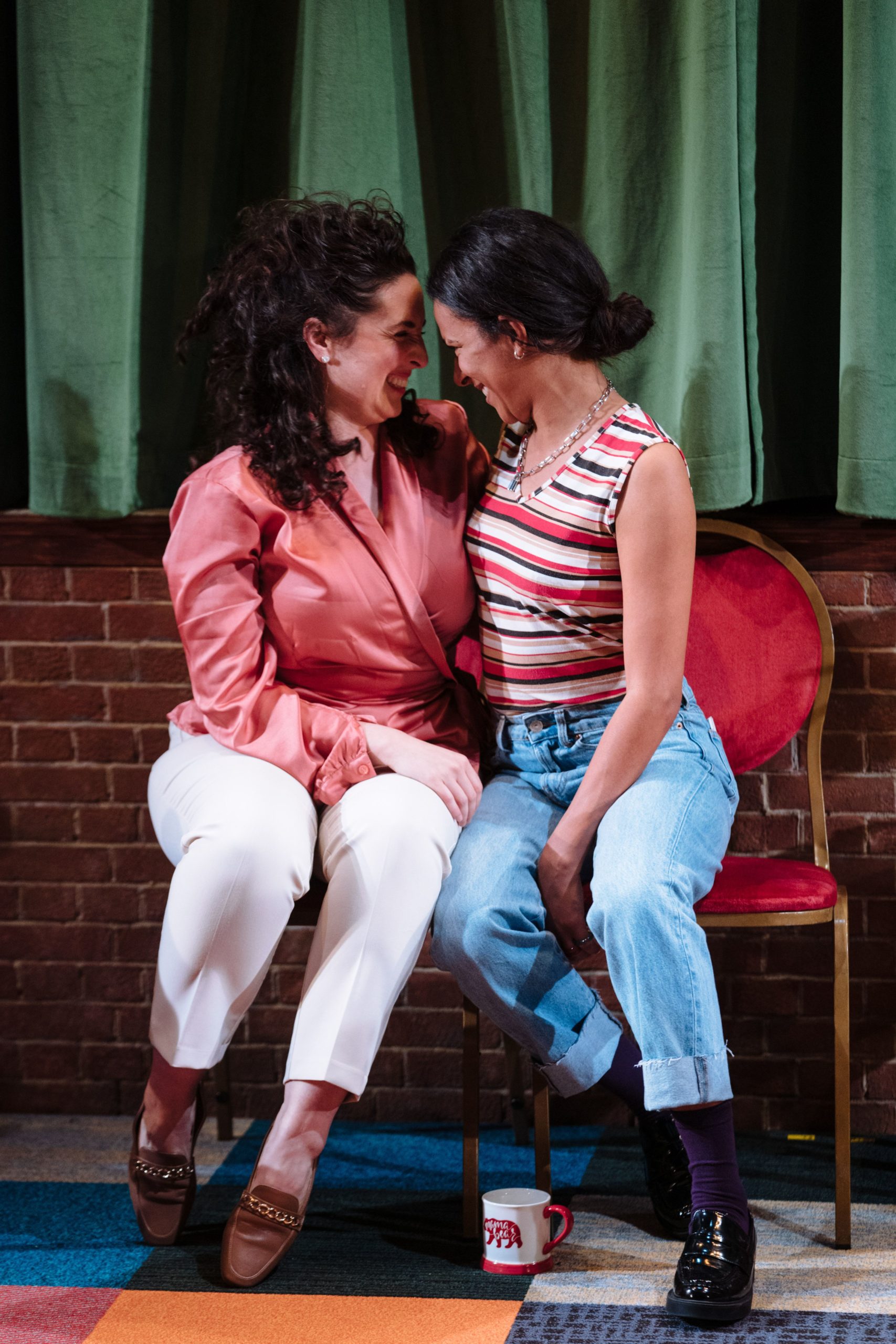
Lara Sawalha and Fanta Barrie in The Ministry of Lesbian Affairs – by Helen Murray.
The best word to describe this play is “familiar” – comfortingly so. In-jokes about U-hauls, IKEA meatballs and short nails had the audience in peals of laughter. But there was also something uncomfortably familiar about harmful tropes characters threw around, like the “gold star lesbian”. Not to mention the shared sapphic self-deprecation when Lori – a lesbian – says she hates lesbians. Cleverly sandwiched between the comical dialogue and resultant laughter is gallows humour.
For so many queer women, comic relief is the only way to deflect from our own self-loathing and vulnerability.
The play’s familiarity is also felt in the choir’s many differences in opinion, reminding us that there’s no one uniform way to be queer, and that inclusivity is an uphill battle. Ana (Claudia Jolly) earnestly reminds Connie (Shuna Snow) to include pronouns in introductions. But Dina, whose first language isn’t English, doesn’t fully understand this at first. And later, Fi (Kiruna Stamell) objects to all the new terminology.
Brig (Mariah Louca) is a trans woman who makes a jab at Ana for “jumping on the solidarity bandwagon”. A distinction is made between performative and substantive activism, made starker by the fact that Ana is the only postcolonial specialist at her university.

The Ministry of Lesbian Affairs – by Helen Murray. Pictured: Kiruna Stamell, Mariah Louca, Kibong Tanji, Claudia Jolly, Fanta Barrie, Lara Sawalha, Shuna Snow
The cast proves emotionally versatile as well. They deliver lines that cut deftly through the queer punchlines to reveal the ugly, patriarchal violence queer women face. After Lori’s rare public display of affection with girlfriend Ana, a drunk man harasses her and demands that she kiss a woman in front of him. She refuses, eventually getting into a physical altercation with him, but for the audience it is clear that the violence in that scene wasn’t from her fist. It was from the man’s leery gaze, the grotesque way he expected strangers to perform for him. It’s a scenario so many queer women are familiar with, complete with muttered misogyny and homophobia.
In a later scene, Lori’s attacked for the second time when she goes to Dina’s house after the latter disappears and fails to answer phone calls or texts. Lori instead finds Dina’s husband.
The scene is tense and so is the audience.
A pin-drop silence fills the long drawn out pause as Lori nervously asks after her friend’s whereabouts. For me, the most horrifying part of the scene is not Dina’s fate, which remains unresolved by the end of the play. Rather, it’s the moment when Dina’s husband corners Lori and physically threatens her. He tries to choke her, symbolic of how suffocated Lori – and so many queer women of colour – feels in queer spaces.
The turning point in the play is when this choir we’re rooting for ends up singing at Pride, just as they wanted to. But then everything goes wrong. Miscommunications and accusations of transphobia disrupt the group’s harmonies. Afterwards, the choir learns they’ve been banned from Pride, for life. Dina is sent back to Qatar after her husband finds out her secret.
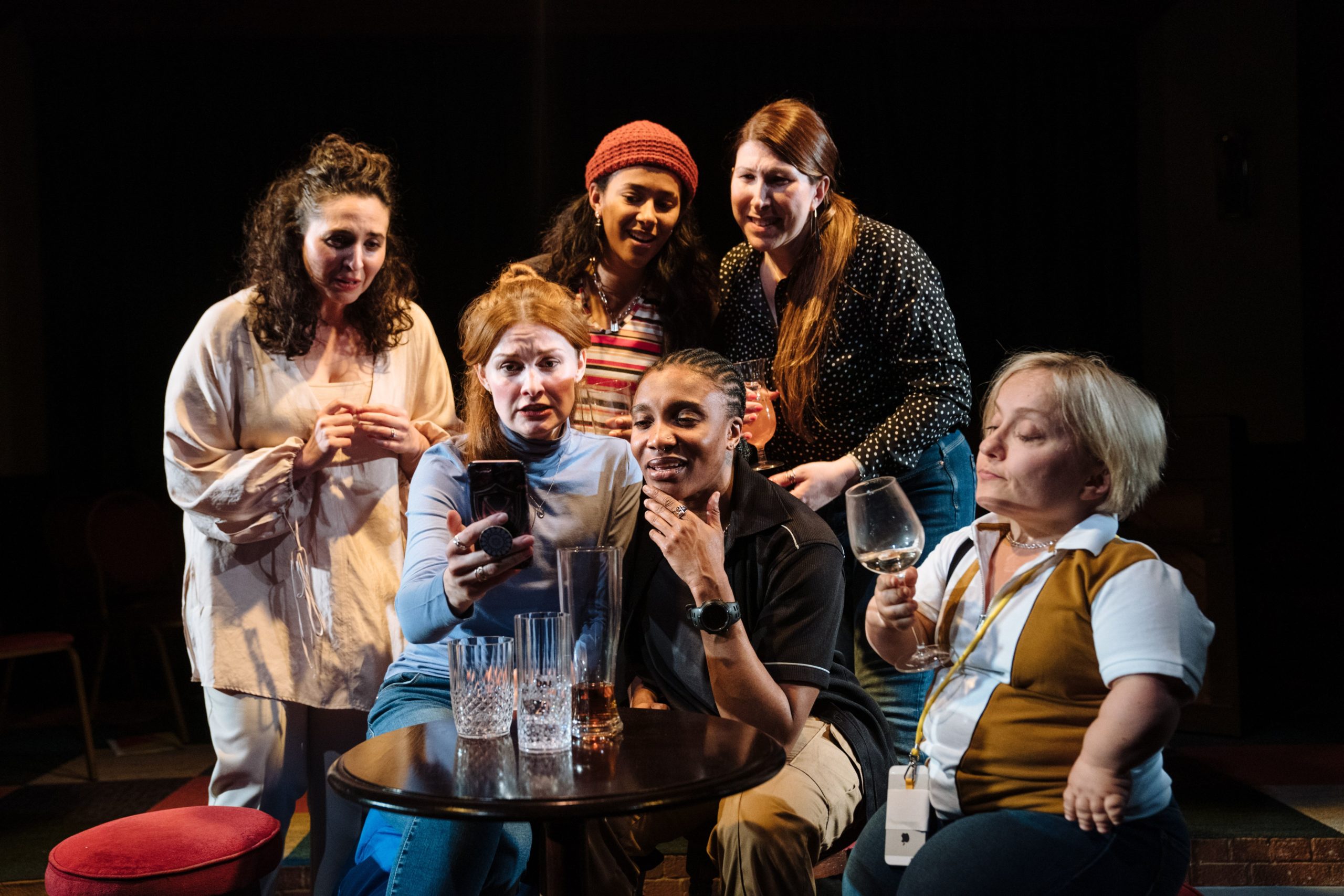
The Ministry of Lesbian Affairs – by Helen Murray.
The third act of the play – covering plotlines around coming out, racism, transphobia and ableism in queer spaces – felt at times like the characters were preaching to the choir. But as long as these issues linger and don’t get better – and especially if they get worse – such preaching has its place. After a series of complex wrangles and run-ins between characters it seems like there’s no hope left for this ragtag choir to reunite at all, let alone reach the harmonious community they achieved earlier on in the play.
But they do. They come together at the end, in the community centre with its leaking ceiling and power outage. Amends are made, apologies accepted, and the group sings one final song, reading the lyrics by shared candlelight.
The play ends with a flicker of hope, to reignite a sense of optimism and laughter in the audience.
In some ways I wonder if it’s unrealistically optimistic. But then I remember the unresolved plot thread of Dina. Her fate remains unknown and is a reminder that for many queer women, being out is downright unsafe.
The Ministry of Lesbian Affairs lays bare the wounds so many queer women and nonbinary people are nursing. It’s a play that exposes the many divisions within the community. But through song and humour, this is a play with the potential to soothe the collective pain of queer women, and perhaps to offer the space and time to heal.
The Ministry of Lesbian Affairs is in Soho Theatre until 11th June, directed by Hannah Hauer-King and written by Iman Qureshi.
Read more:
